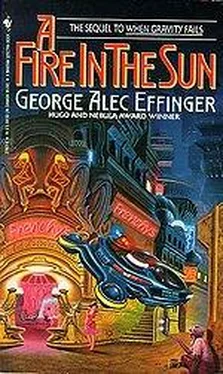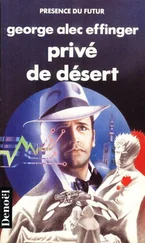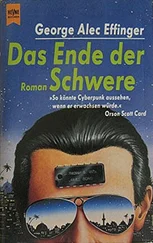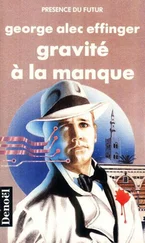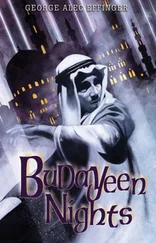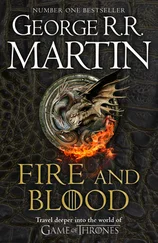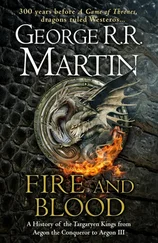George Effinger - A Fire in the Sun
Здесь есть возможность читать онлайн «George Effinger - A Fire in the Sun» весь текст электронной книги совершенно бесплатно (целиком полную версию без сокращений). В некоторых случаях можно слушать аудио, скачать через торрент в формате fb2 и присутствует краткое содержание. Год выпуска: 1989, ISBN: 1989, Издательство: Bantam Books, Жанр: Киберпанк, на английском языке. Описание произведения, (предисловие) а так же отзывы посетителей доступны на портале библиотеки ЛибКат.
- Название:A Fire in the Sun
- Автор:
- Издательство:Bantam Books
- Жанр:
- Год:1989
- ISBN:0-385-26324-4
- Рейтинг книги:4 / 5. Голосов: 1
-
Избранное:Добавить в избранное
- Отзывы:
-
Ваша оценка:
- 80
- 1
- 2
- 3
- 4
- 5
A Fire in the Sun: краткое содержание, описание и аннотация
Предлагаем к чтению аннотацию, описание, краткое содержание или предисловие (зависит от того, что написал сам автор книги «A Fire in the Sun»). Если вы не нашли необходимую информацию о книге — напишите в комментариях, мы постараемся отыскать её.
Nominated for Hugo Award for Best Novel in 1990.
A Fire in the Sun — читать онлайн бесплатно полную книгу (весь текст) целиком
Ниже представлен текст книги, разбитый по страницам. Система сохранения места последней прочитанной страницы, позволяет с удобством читать онлайн бесплатно книгу «A Fire in the Sun», без необходимости каждый раз заново искать на чём Вы остановились. Поставьте закладку, и сможете в любой момент перейти на страницу, на которой закончили чтение.
Интервал:
Закладка:
We had to skirt the Budayeen. Although the Street runs in the right direction, it comes to a dead end at the entrance to a cemetery. I knew a lot of people in there — friends and acquaintances who’d died and been dumped in the cemetery, and the still breathing who were so desperately poor that they’d taken up residence in the tombs.
Shaknahyi passed to the south of the quarter, and we drove through a neighborhood that was entirely foreign to me. At first the houses were of moderate size and not too terribly rundown; but after a couple of miles, I noticed that everything around me was getting progressively shabbier. The flat-roofed white stucco homes gave way to blocks of ugly tenements and then to burned-out, vacant lots dotted with horrible little shacks made of scrap plywood and rusting sheets of corrugated iron.
We drove on, and I saw groups of idle men leaning against walls or squatting on the bare earth sharing bowls of liquor, probably laqbi, a wine made from the date palm. Women screamed to each other from the windows. The air was foul with the smells of wood smoke and human excrement. Children dressed in long tattered shirts played among the garbage strewn in the gutters. Years ago in Algiers I had been like these hungry urchins, and maybe that’s why the sight of them affected me so much.
Shaknahyi must have seen the expression on my face. “There are worse parts of town than Hamidiyya,” he said. “And a cop’s got to be ready to go into any kind of place and deal with any kind of person.”
“I was just thinking,” I said slowly. “This is Abu Adil’s territory. It doesn’t look he does all that much for these people, so why do they stay loyal to him?”
Shaknahyi answered me with another question. “Why do you stay loyal to Friedlander Bey?”
One good reason was that Papa’d had the punishment center of my brain wired when the rest of the work was done, and that he could stimulate it any time he wanted. Instead, I said, “It’s not a bad life. And I guess I’m just afraid of him.”
“Same goes for these poor fellahin. They live in terror of Abu Adil, and he tosses just enough their way to keep them from starving to death. I just wonder how people like Friedlander Bey and Abu Adil get that kind of power in the first place.”
I watched the slums pass by beyond the windshield. “How do you think Papa makes his money?” I asked.
Shaknahyi shrugged. “He’s got a thousand cheap hustlers out there, all turning over big chunks of their earnings for the right to live in peace.”
I shook my head. “That’s only what you see going on in the Budayeen. Probably seems like vice and corruption are Friedlander Bey’s main business in life. I’ve lived in his house for months now, and I’ve learned better. The money that comes from vice is just pocket change to Papa. Counts for maybe five percent of his annual income. He’s got a much bigger concern, and Reda Abu Adil is in the same business. They sell order.”
“They sell what?”
“Order. Continuity. Government.”
“How?”
“Look, half the countries in the world have split up and recombined again until it’s almost impossible to know who owns what and who lives where and who owes taxes to whom.”
“Like what’s happening right now in Anatolia,” said Shaknahyi.
“Right,” I said. “The people in Anatolia, when their ancestors lived there it was called Turkey. Before that it was the Ottoman Empire, and before that it was Anatolia again. Right now it looks like Anatolia is breaking up into Galatia, Lydia, Cappadocia, Nicaea, and Asian Byzantium. One democracy, one emirate, one people’s republic, one fascist dictatorship, and one constitutional monarchy. There’s got to be somebody who’s staying on top of it all, keeping the records straight.”
“Maybe, but it sounds like a tough job.”
“Yeah, but whoever does it ends up the real ruler of the place. He’ll have the real power, because all the little states will need his help to keep from collapsing.”
“It makes a weird kind of sense. And you’re telling me that’s what Friedlander Bey’s racket is?”
“It’s a service,” I said. “An important service. And there are lots of ways for him to exploit the situation.”
“Yeah, you right,” he said admiringly. We turned a corner, and there was a long, high wall made of dark brown bricks. This was Reda Abu Adil’s estate. It looked like it was every bit as huge as Papa’s. As we stopped at the guarded gate, the luxuriousness of the main house seemed even grander contrasted to the ghastly neighborhood that surrounded it.
Shaknahyi presented our credentials to the guard. “We’re here to see Shaykh Reda,” he said. The guard picked up a phone and spoke to someone. After a moment, he let us continue.
“A century or more ago,” Shaknahyi said thoughtfully, “crime bosses had these big illicit schemes to make money. Sometimes they also operated small legal businesses for practical reasons, like laundering their money.”
“Yeah? So?” I said.
“Look at it: You say Reda Abu Adil and Friedlander Bey are two of the most powerful men in the world, as ‘consultants’ to foreign states. That’s entirely legitimate. Their criminal connections are much less important. They just provide livelihoods for the old men’s dependents and associates. Things have gotten turned around ass-back-wards.”
“That’s progress,” I said. Shaknahyi just shook his head.
We got out of the patrol car, into the warm afternoon sunshine. The grounds in front of Abu Adil’s house had been carefully landscaped. The fragrance of roses was in the air, and the strong, pleasant scent of lemons. There were cages of songbirds on either side of an ancient stone fountain, and the warbling music filled the afternoon with a languorous peace. We went up the ceramic-tiled path to the mansion’s geometrically carved front door. A servant had already opened it and was waiting for us to explain our business.
“I’m Officer Shaknahyi and this is Marid Audran. We’ve come to see Shaykh Reda.”
The servant nodded but said nothing. We followed him into the house, and he closed the heavy wooden door behind us. Sunlight streamed in from latticed windows high over our heads. From far away I heard the sound of someone playing a piano. I could smell lamb roasting and coffee brewing. The squalor only a stone’s throw away had been completely shut out. The house was a self-contained little world, and I’m sure that’s just as Abu Adil intended it.
We were led directly into Abu Adil’s presence. I couldn’t even get in to see Friedlander Bey that quickly.
Reda Abu Adil was a large, plump old man. He was like Papa in that it was impossible to guess just how old he might be. I knew for a fact that he was at least a hundred twenty-five. It wouldn’t surprise me to learn that he was just as old as Friedlander Bey. He was wearing a loose white robe and no jewelry. He had a carefully trimmed white beard and mustache and thick white hair, out of which poked a dove-gray moddy with two daddies snapped in. I was expert enough to notice that Abu Adil did not have a protruding plug, as I had; his hardware chipped into a corymbic socket.
Abu Adil reclined on a hospital bed that had been elevated so that he could see us comfortably as we spoke. He was covered by an expensive hand-embroidered blanket. His gnarled hands lay outside the cover, flat on either side of his body. His eyes were heavy-lidded, as if he were drugged or desperately sleepy. He grimaced and groaned frequently while we stood there. We waited for him to say something.
He did not. Instead, a younger man standing beside the hospital bed spoke up. “Shaykh Reda welcomes you to his home. My name is Umar Abdul-Qawy. You may address Shaykh Reda through me.”
Читать дальшеИнтервал:
Закладка:
Похожие книги на «A Fire in the Sun»
Представляем Вашему вниманию похожие книги на «A Fire in the Sun» списком для выбора. Мы отобрали схожую по названию и смыслу литературу в надежде предоставить читателям больше вариантов отыскать новые, интересные, ещё непрочитанные произведения.
Обсуждение, отзывы о книге «A Fire in the Sun» и просто собственные мнения читателей. Оставьте ваши комментарии, напишите, что Вы думаете о произведении, его смысле или главных героях. Укажите что конкретно понравилось, а что нет, и почему Вы так считаете.
